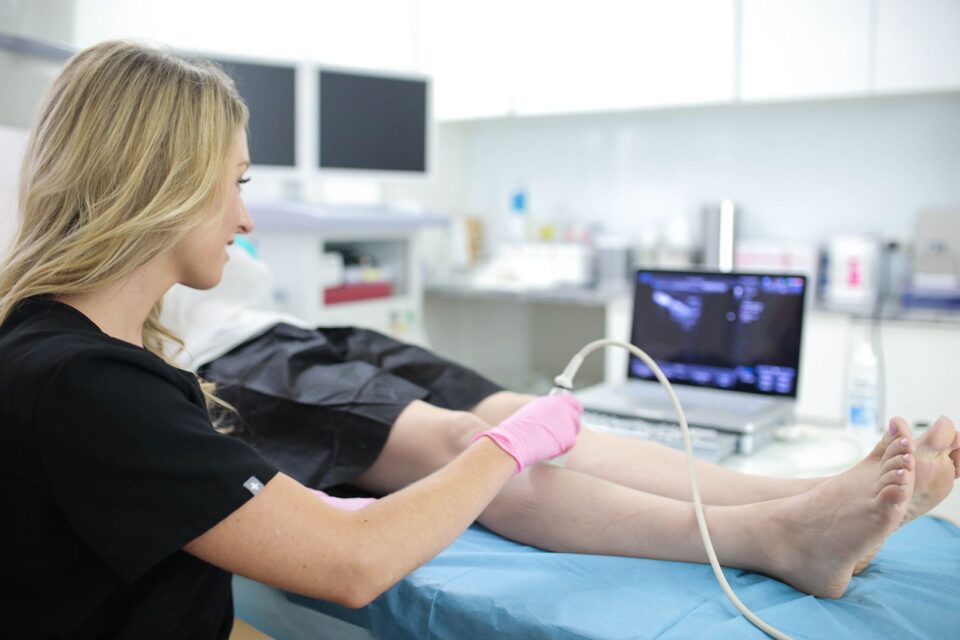Are you experiencing discomfort or unsightly bulges in your veins? Wondering what type of specialist can help you find relief and restore the health of your veins? In this comprehensive guide, we’ll explore the different types of doctors who treat vein-related issues and how they can benefit you.
Table of Contents
Benefits Of Consulting A Vein Specialist
Seeking treatment from a qualified vein specialist offers numerous benefits, including:
Expertise In Venous Conditions:
Vein specialists have extensive training and experience in diagnosing and treating various venous conditions, ranging from spider veins to deep vein thrombosis.
Personalized Treatment Plans:
A vein specialist will tailor a treatment plan to address your specific needs and concerns, ensuring the most effective outcomes.
Advanced Treatment Options:
These doctors stay updated on the latest advancements in vein care and offer cutting-edge treatments that deliver superior results with minimal discomfort and downtime.
Comprehensive Care:
From initial evaluation to post-treatment follow-up, vein specialists provide comprehensive care to ensure your veins remain healthy and functional.
what kind of doctor treats veins
Vascular Surgeon
Vascular surgeons specialize in treating conditions affecting the blood vessels, including arteries and veins. They are skilled in performing surgical procedures to repair or remove damaged veins, such as vein stripping or vein bypass surgery. Additionally, vascular surgeons may offer minimally invasive procedures like endovenous laser treatment (EVLT) or sclerotherapy to address vein issues.
Interventional Radiologist
Interventional radiologists use imaging techniques like ultrasound to guide minimally invasive procedures for treating vein disorders. These procedures, such as venous ablation or embolization, are performed through small incisions, resulting in less pain and faster recovery compared to traditional surgery.
Phlebologist
Phlebologists are medical doctors who specialize in the diagnosis and treatment of vein disorders. They may come from various backgrounds, including dermatology, vascular medicine, or general practice. Phlebologists offer a range of treatments, including sclerotherapy, laser therapy, and ambulatory phlebectomy, to address cosmetic and symptomatic vein issues.
Dermatologist
Dermatologists focus on diagnosing and treating conditions affecting the skin, hair, and nails, including cosmetic concerns like spider veins and varicose veins. They may offer treatments such as sclerotherapy or laser therapy to improve the appearance of veins and alleviate associated symptoms.
Choosing The Right Doctor For Your Vein Treatment
When selecting a doctor to treat your vein condition, consider the following factors:
Credentials And Experience:
Look for a doctor who is board-certified and has extensive experience in treating vein disorders. Ask about their training and the number of procedures they perform annually.
Treatment Options:
Inquire about the range of treatment options offered by the doctor and their expertise in performing specific procedures. Choose a doctor who can provide personalized recommendations based on your unique needs.
Patient Reviews And Testimonials:
Read reviews from previous patients to gauge their satisfaction with the doctor’s care and the outcomes of their treatment.
Communication And Comfort Level:
Ensure that you feel comfortable discussing your concerns with the doctor and that they take the time to address your questions and explain treatment options thoroughly.
In Conclusion
Various types of doctors can effectively treat vein-related issues, offering personalized care and advanced treatment options to improve your vein health and quality of life. By choosing a qualified and experienced vein specialist, you can confidently embark on your journey towards healthier, happier veins.

